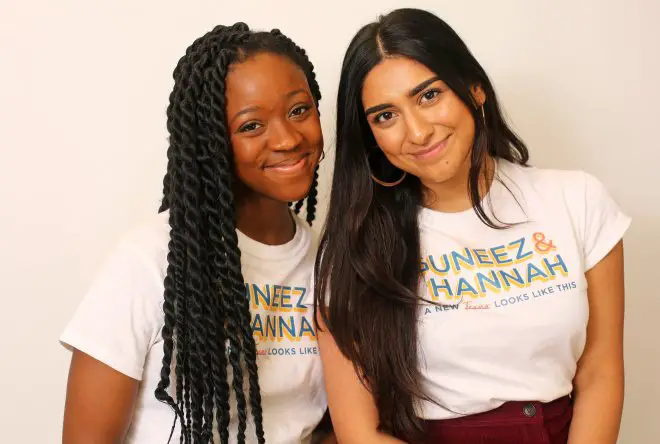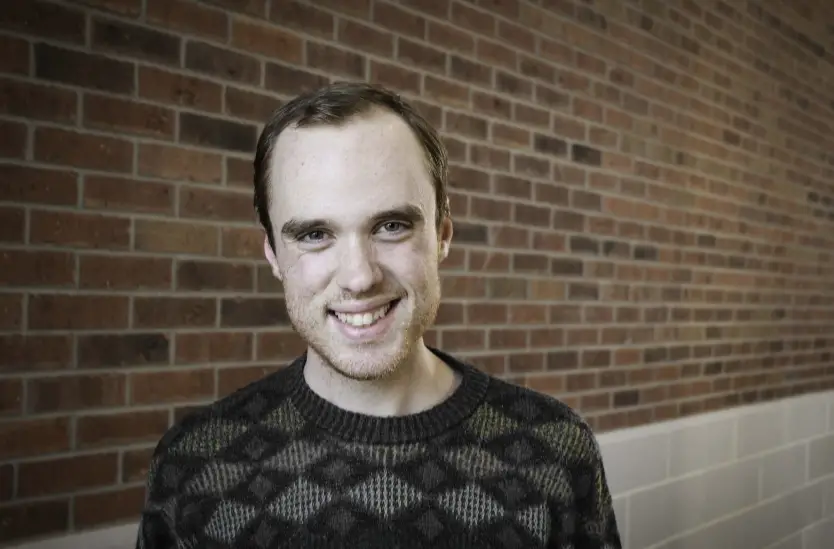The identities users create on social media often stray far from how those users act in day-to-day situations with others. The autonomy that users hold over their online profiles keeps them accountable for how they interact with any particular form of social media. One real-world example of the variation between a person’s true intentions and their perceived social media persona can be found in last month’s election for the University of Texas student government.
One campaign, the Guneez-Hannah ticket, came under scrutiny by the Election Supervisory Board due to a certain tweet the campaign team liked. The ESB also referenced a video by the campaign which, the board claimed “did not align with the rest of their official social media campaign activities.”
The tweet, which was from @sassysamosa, reads, “Hey kids vote @GuneezHannah for UT pres and vp! These two genuine WoC have a mission to cater to marginalized and tokenized voices and we’re tired of straight white zionist men in power!!!”
The Election Supervisory Board of UT came to the decision to give a moratorium to the Guneez-Hannah campaign as a Class B violation. Specifically, the ESB cited “deceptive campaign practices” and “discriminatory language upon a social media site” as justification for their punishment.
Upon further review, however, UT’s Student Government Supreme Court found that they couldn’t describe the actions taken by the Guneez-Hannah team as “knowingly deceptive.”
The ruling by the SG Supreme Court said, “In showing gratitude for voter’s support, a campaign need not adopt every part of the voter’s agenda as its own agenda. It is clear based on the wording of the tweet that the statement of the campaign’s platform is separate from the personal importance to the writer of reducing the number of straight white zionist men in power.”

The choice made by the SGSC, regardless of the content of the tweet or video, could raise some points of contention. For example, what parts of a user’s social media profile, especially if that user represents a political campaign, should one take into serious consideration? Should users consider the entire tweet or only the parts that directly relate to the support of their campaign?
The identity a user portrays online can lend insight into how those users want others to view them. While people don’t meticulously consider all of their actions on social media, they do consider them in a way that deviates from the impromptu nature of face-to-face interactions. After all, when liking a tweet or posting a video, a user has ample time to process what they’re doing.
That said, there are profiles that have a disclaimer that usually says something along the lines of “like/retweet ≠ endorsement.” The Guneez-Hannah campaign for the University of Texas student government, however, has no such message in their bio.
It doesn’t bother me that Guneez-Hannah may, or may not, wish to reduce the number of “straight white zionist men in power.” Rather, the questionable topic truly stems from the complications that social media presents when defining one’s online identity.
Hyperbole, sarcasm and irony as a whole play a huge part in many online personas. This is not to suggest that any form of unprofessional activity took place with the social media branch of the Guneez-Hannah campaign for the University of Texas student government.
However, their predicament ties directly to the issues that come about due to the ambiguous nature of how people present themselves online. Often, it can be difficult for the reader to understand which parts of a social media profile are satiric and which parts are sincere.
The decision made by the SGSC of the University of Texas shows just how fluid and malleable our online personas can become when trying to justify them in the real world. When online, a user cannot like just half of a tweet or part of a photo; instead, the user must like the entire piece of media. In face-to-face interactions, however, a user can specifically articulate which parts of certain media they enjoy and the parts that they do not enjoy.

In developing an online personality, the lines of what a user endorses and what a user does not endorse become blurred. The way in which people interact with these forms of social media is absolute. Once a user likes, retweets or posts something, the entire piece of media is there. Although they can always delete or unlike certain pieces of media, the initial interaction is an absolute one.
You can rarely find a form of social media interaction that lays out a rating system on a spectrum — such as something similar to the star system, which YouTube first implemented when the site launched. The interesting thing is that YouTube employees noticed that people were either giving videos one star or five stars, so the platform switched to a like/dislike system for rating videos instead.
The all-or-nothing approach to how a user reacts to a piece of media is far removed from how a person might react to it in the real world. Sometimes, it’s alright to be on the fence about something or to pick and choose the bits of media you like and the bits you may not like.
Ultimately, the decision made by the Student Government Supreme Court acknowledges that the end-all-be-all nature of social media design fails to take into consideration just how plastic and nuanced everyone’s opinions can be in their day-to-day lives.

















